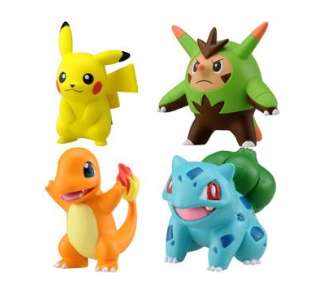Twinsprit, a Spanish application company, has started providing software development kits (SDKs) to game application developers to bring near-field communication (NFC) to the mobile game world. Using QR code and NFC technology, the platform links cards or toys to the game through the data of tagged items, and then stores them on twinsprite cloud based servers. That is, adding RFID to smart Toys.

Twinsprite is working with the Dutch game company, monskey, to provide a system that allows users to watch and play the digital version of the monskey Figurine through a video game designed for Android smartphones. Next month, monskey plans to launch a version of the toy, which will come with a character card with a special QR code that allows players to unlock and activate their own monskey characters in the game. However, Lucia Garate, co-founder of twinsprite, says it’s much easier to read NFC tags than scan QR codes with a mobile camera. Therefore, she believes that NFC technology may attract users such as children due to its convenient use.
Monskey video game for Android phone
In the NFC version, RFID tags can be built directly into statues at the time of manufacture. Twinsprite is working with Smartrac to provide its circle NFC label, which is made of NXP semiconductor ntag213 IC. Smartrac will not only provide NFC tags, but also encode each tag with a unique ID number provided by Twinsprite to match the players of a specific game. In this way, the user can read the tag ID and immediately identify the specific statue or object in front of him or her when the NSC enabled smartphone runs the money application. Garate expects that monskey will release the NFC version of the figurine after the release of the QR version, but monskey has not set a date for the release of the NFC version.
Twitspilet is currently in talks with game companies around the world who are interested in using the technology to enhance existing games and smart toys. For example, a child receiving a new toy can use an NFC enabled smartphone or tablet to read the RFID tag of the toy and immediately include its own unique skills and features in an existing game in an app installed on the device. Gallant said the system could also be used without toys. For example, these tags can be embedded in cards or tags, and then game developers or providers can place them in various public places, so that players can read these tags through mobile phones, and add features or new levels to the game.
Twinspritesdk consists of necessary software and several NFC labels, which are installed in 3D printing toys. Game developers also embed these tags into the figurines and enter personal information about each Figurine into their game applications.





